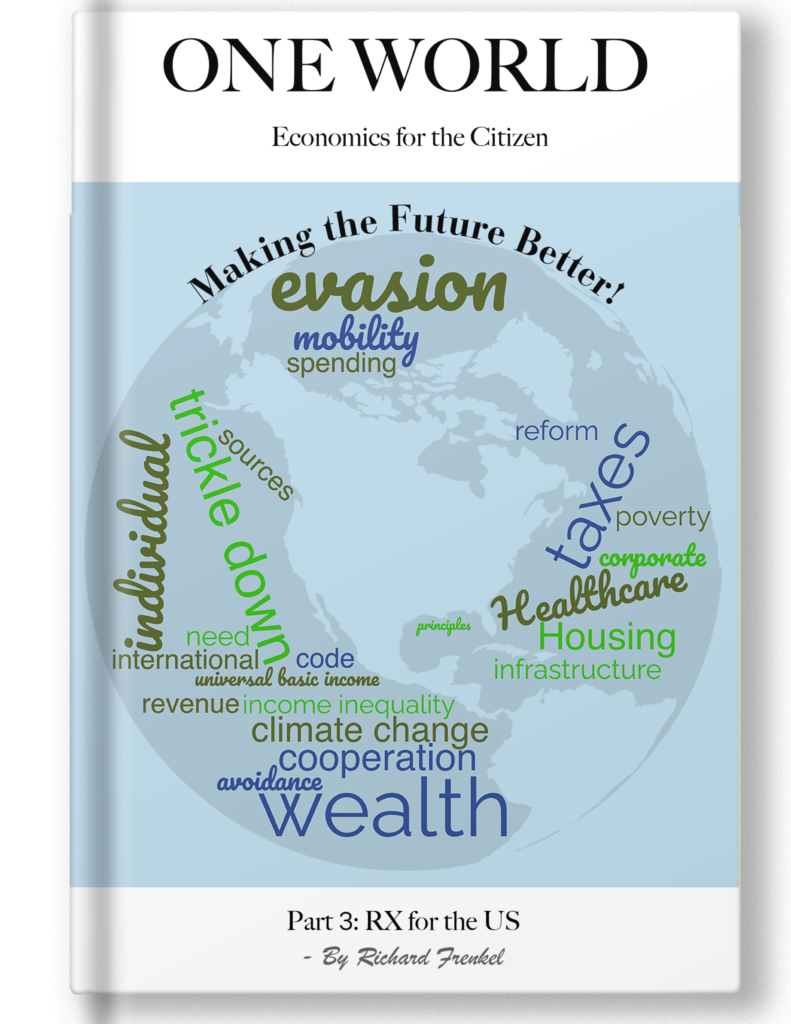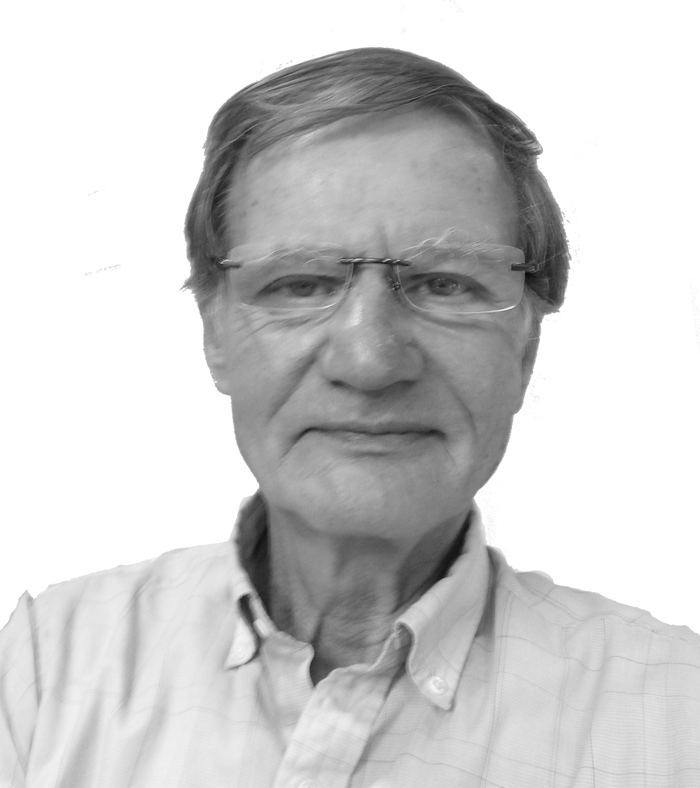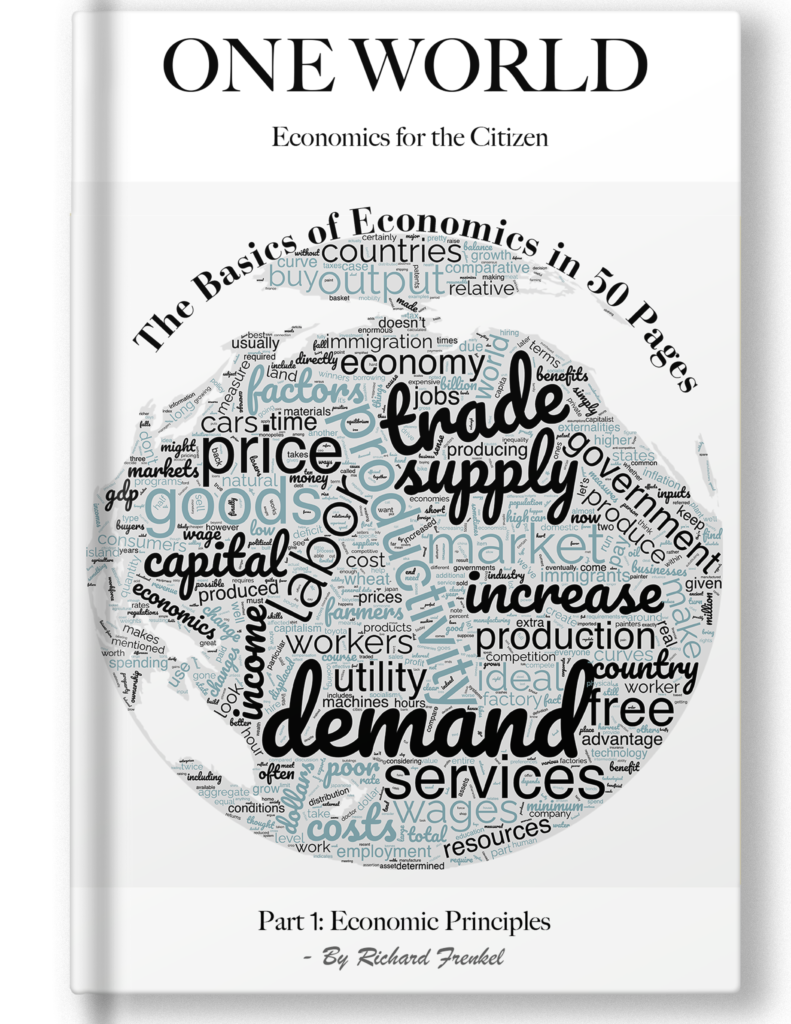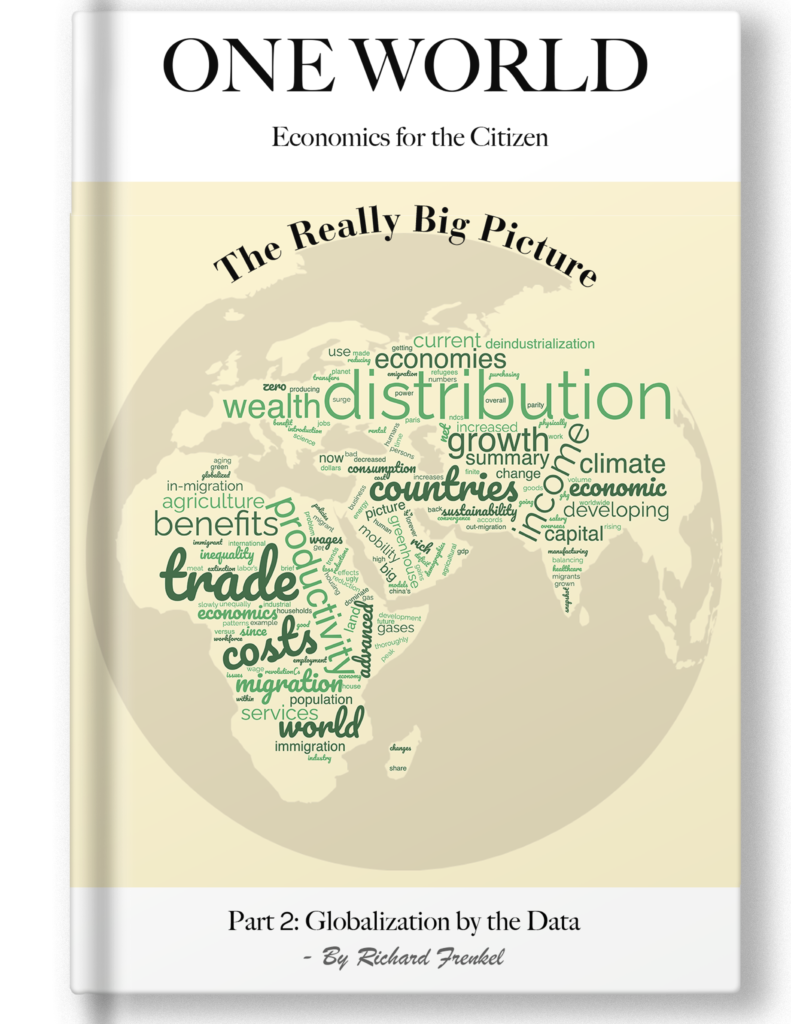Do you want the Big Economic Picture?
Few of us have broad knowledge of the economy of our own country, let alone the world economy. And yet, it is really important to understand basic economic principles and how automation and globalization affects the distribution of income and wealth around the world and within countries. Every citizen needs this knowledge to make informed choices on policies.
One World is divided into three “books”. The first introduces basic economic principles starting with market economics, the second looks at world and US economic data, and the third recommends policies that would address some of the economic issues the US faces. All three can be read for free on this site.


ONE WORLD
One World Was Written to Give the Big Picture
How is wealth and income distributed around the globe and within countries?
What exactly is the level of trade between countries?
Are the developing countries catching up with the “rich” nations?
How have productivity changes, trade, and immigration affected jobs in the US and other countries? Which is the most important?
Read One World for Free!
Choose any way to read that works for you.
These 3 parts do not have to be read contiguously! Jump in wherever you like.
The Basics of Economics in 50 Pages
Only economics can provide a coherent picture of the world economy and its interconnectedness and growth. Beyond that, the human population and activity is now running up against the limits of what our Earth can support. Economics gives us a handle on how we can get from here to a sustainable use of the Earth’s resources.
The Really Big Picture
The World is thoroughly interconnected physically and economically. Trade for most countries is about 50% of GDP. Climate change affects us all and has enormous economic consequences. The World’s human population at 8 billion and growing is already straining some resources. We look at the economics of Globalization, the distribution of income and wealth both within and between countries, and how productivity, trade, and migration have affected workers in both rich and developing countries.
RX For the US
The third book looks at the US in more detail. What exactly does the “government” spend money on? Who pays and benefits? How big is the deficit? What is the distribution of income and wealth and how has that changed under Reagan and the presidents following him? The US is a very rich country, why do so many feel left behind? I suggest how we can make life better for all of us without throttling growth.

Richard Frenkel
I’ve worked in a car wash, warehouse, shoe factory, got a masters from MIT, been an IT manager in the corporate world, built and run a small but profitable IT firm for over 25 years. I have a bit of a formal background in economics, but my views are informed by experience.


